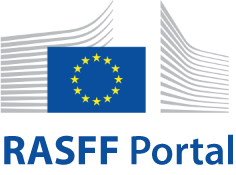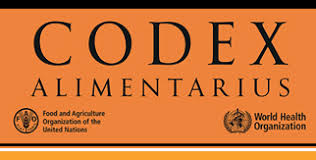In 2022 EFA continued its engagement on food-related issues at both the EU and the international stage. In a policy arena featuring multiple trends and emerging risks, our community showed great resilience and commitment to ensure safe food for all allergy patients, and safeguard their right to food information.
Strengthening allergen labelling the EU
In 2022, the EU debate centred around improving the Food Information to Consumers Regulation (1169/2011) with a focus on nutrition and origin. Given the narrow scope of the revision, EFA published a statement urging the Commission to improve the current provisions for allergen labelling and to legislate for harmonised Precautionary Allergen Labelling (PAL), which is currently voluntary information. The existing differences on the use of PAL can restrict food choices among people with food allergies and lead to patients taking unnecessary risks with the foods they consume.
EFA reacted to the effects the war in Ukraine had in the EU food chain. Firstly, we communicated to the European Commission our concerns on the risks of the potential derogations in the labelling of allergen-containing substitutes to cope with the decrease of Ukrainian sunflower oil. Secondly, we sent a letter drawing the Commission’s attention on the excessive labelling around the accidentally contaminated soy lecithin with peanut protein in India, reported in several EU Member States via the EU Rapid Alert System for Food and Feed (RASFF) portal. The problem related to the use of badly sanitised peanut seeds, as a result the COVID-related disruptions in the supply chain of soybeans.

As an official stakeholder, EFA engaged closely with the European Food Safety Authority (EFSA). During the Annual Stakeholder Forum, we facilitated a discussion on food information via electronic means.

At the forefront of international food labelling standards
As an observer to the Codex Alimentarius Commission (CAC), EFA brought the food allergy patient perspective to this global forum setting guidelines, standards and codes of conduct for food. EFA is an active organisation in the regular Codex procedures and an expert member in three thematic electronic Working Groups on allergen labelling, innovation‐use of technology in food labelling, on the sale of food through the means of e-commerce, and innovation in food labelling.

In 2022, EFA closely followed the work of a FAO/WHO expert group tasked with the revisions of the General Standard for the Labelling of Prepacked Food (GSLPF), the Precautionary Allergen Labelling (PAL) guidance, and the definition of allergen thresholds. EFA also worked with the our Food Allergy Working Group on the information on food labelling exemptions in emergencies and on the revised guidelines on the use of technology in the provision of food information.
In 2022, EFA participated in the following Codex Alimentarius Commission activities:
- 7 responses to Codex consultations
- 45th annual Codex meeting, with a public statement